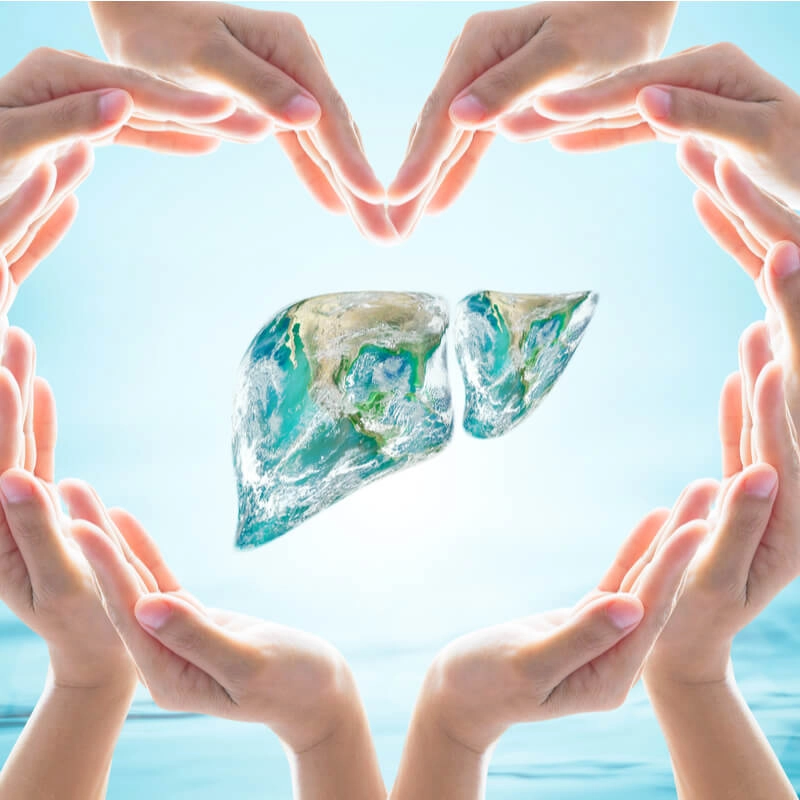Home/Wellness Zone/Sakra Blogs
27th Jul, 2020

With Covid-19 outbreak, we are living through a tough time like no other. The deadly virus has not just infected our body but also our mind and has disrupted the normal course of life. Nothing is the same as before, including hospital visits or reaching out to the doctor to treat conditions other than the Coronavirus. It has been observed that the SARS-CoV-2 virus does affect liver inflammation and liver enzymes and can also result in liver dysfunction. This makes it essential for individuals with liver cirrhosis or Hepatitis B and C to take special precautions like enhanced monitoring of liver enzymes as one goes through the pandemic times. As we observe World Hepatitis Day on July 28, we must emphasize the safety protocols that one must follow in case they are suffering from Hepatitis or chronic liver issues.
The link between Covid-19 and liver: Why Hepatitis patients must be more careful?
While no official claims have been made that having Hepatitis B and C may put one at a greater risk of contracting Covid-19 as of now, it is certain that the virus can increase liver disease progression and decompensation of the organ. Clinical expertise and available information suggest that those with chronic conditions like Hepatitis may be at a higher risk for severe illness from Covid-19 virus, specifically if Hepatitis is not adequately controlled.
Staying safe during COVID -19 crisis with Hepatitis
It is important that an individual with Hepatitis effectively practices social distancing like anyone else but with more restrictions. Self-isolate with or without an official order. Maintaining hand hygiene, i.e washing hands with soap and water or sanitiser, sanitising frequently touched surfaces along with the supplies from outdoor must be used after proper wash/care.
If one is on medications for chronic hepatitis during this time, they must ensure that they have adequate stock for an extended period of time. The stocking up is important during uncertain times of lockdown as skipping a day's medicine can flare up the virus and increase liver damage risk.
It is suggested to opt for a virtual meeting with the doctor if need be and use the telemedicine facility offered by most hospitals at this time to make sure the condition is under constant check. Hepatitis related tests like ultrasounds or blood tests could be kept on hold under the supervision of the doctor, if and only if, the delay does not affect one's condition. In case of visiting the hospital for any test, make sure one takes adequate protective measures to avoid contracting Covid-19 and makes a prior appointment with the doctor before visiting him or her.
Tips to keep your liver healthy during a pandemic
As we live through the pandemic, it is essential for those suffering from Hepatitis to be cautious about keeping up the health of their liver.
Keep an eye on the nutrition labels and make informed food decisions that are particularly favourable for liver health.
If possible, get fresh fruits and vegetables and freeze them for the upcoming weeks.
Do not give up on physical activities, both indoor and outdoor. Do indoor exercises and go out for a pinch of fresh air in a private garden or rooftop. Maintain social distancing for outdoor activities and get creative for indoor workouts.
Please beware of Over the counter/Unauthorized Herbs for any conditions during the pandemic as most of these are toxic to the liver.
Prefer home cooked foods as acute Hepatitis A and E are foodborne.
Covid-19 and treatment for Hepatitis B or C
Those living with Hepatitis B or C should not stop or change their treatment unless they are advised by their doctors to do so. They must be prepared to pile up their medicines for a month, for now, to make sure they do not skip a dosage.
Although access to doctors may vary, continuous monitoring of health should not suffer. Make use of telemedicine consultancy as much as possible and in case the liver check-up has already got delayed, it is wise to schedule one on priority and go for it with adequate supervision by the treating doctor.
Enquire Now
